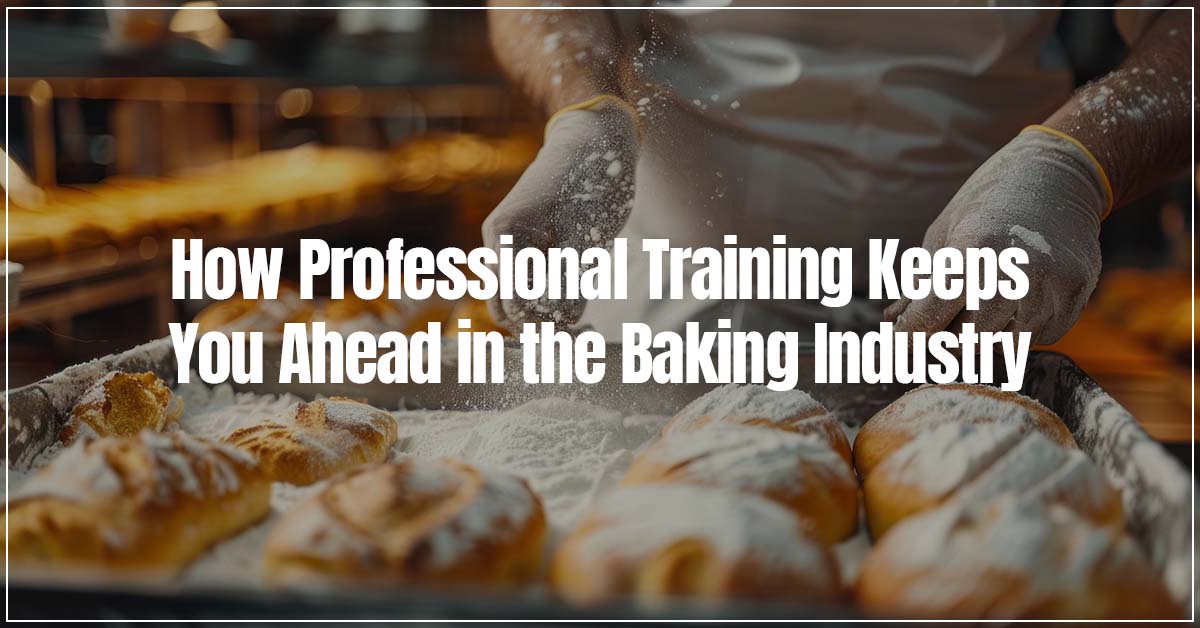The baking landscape is changing more quickly than ever. Skills that took years to master, from rustic bread making to sophisticated pastry crafting, are now being developed through formal education. For those looking to create a serious career, baking Courses in Chennai will help you slow down the pace, in order to hone your craft. These Professional Courses help to prepare bakers for the kitchen opportunities of today and the demands of tomorrow’s marketplace as well.
In this blog, we will consider how professional training gives bakers a competitive edge.
Understanding the Future of Baking Industry
The future of baking industry is allowing consumer preferences to change. Shoppers want products that are healthy, gluten-free and decorative as well as delicious. At the same time businesses are exploring automation, sustainability and global flavor influences.
Bakers will need to adjust to the following changes:
Health-conscious demand – Consumers who are looking for low-sugar, plant-based and allergen-friendly products.
Technology in baking – Equipment technology such as precision ovens and automated mixers are changing the way we manufacture.
Global influence – Flavors and techniques transfer across national borders quicker than ever.
While baking is still important, the baker can no longer rely just on knowing how to bake. They now need to look to the future and anticipate their customer’s wants and needs.
Why Professional Training Matters
While self-teaching has a place, training for professionals exceeds simply following recipes, as it gives a framework for effectively understanding techniques such as why laminated doughs rise, the interactions of various components and why flavors balance. With technical knowledge and experience, bakers gain the capacity to innovate instead of guess. Training also provides students with:
Industry-grade equipment – Introducing students to the working conditions, equipment and processes of a real-world atmosphere prepares them for a bakery.
Standardized techniques – Consistency is tantamount in this industry. Training encourages accuracy while working with a recipe.
Time management – Working in a bakery is an efficient process and requires the ability to balance creativity with efficiency.
All of which are rarely provided in totality by online tutorials or home testing.
Skill Development for Practice in the Real World
A distinct benefit of having a formal education is the experiential learning. For example, learning viennoiserie in a classroom provides students with hands-on experience in shaping, layering and proofing dough with personalized feedback from an expert. These skills can actively lead to careers.
Whether they work at an artisan bakery, in a hotel kitchen or in a catering business, the training prepares students for every possible job in bakery industry. Students leave the program not only with a full set of recipes, but also with the work-on confidence to perform these skills under pressure and adapt them for different audiences.
Staying Ahead with Baking Industry Trends
Emerging trends, such as plant-based desserts, low sugar options and fusion flavors are not temporary trends; they are fundamental changes that are influencing the industry. Professional programs include modules on understanding shifts in consumer behaviour so students can create demand instead of reacting to it.
Some baking industry trends:
Sustainable baking – Using ingredients from sustainable sources and reducing food waste.
Artisan baking – Embracing back to the method of small batches and hand-crafting quality and flavour.
Flavour innovation – Combining unexpected ingredients like spices, herbs and local flavours to classic baking.
Through learning to incorporate consumer expects into traditional techniques, the baker allows bakeshop owners to protect their careers in interest of their profession.
The Role of Mentorship and Networking
One of the under-appreciated benefits of training is a student’s abilities to find new mentors and peers to exchange knowledge. While in a professional course, students learn not only from instructors, they also learn from each other, by exchanging ideas and ways of working.
This network of students usually facilitates new opportunities down the road, in the form of either:
- Cohort collaborating with fellow bakers,
- Internships with a well-known bakery,
Professionals who will mentor and provide professional opportunities for new careers.
Building your career as a baker requires hard work and practice as well as structure, guidance and exposure to new ways of doing things. Our Baking Classes in Anna Nagar provides this with learning opportunities that involve structure (professional training through a baking course), an industry mentor and incorporating modules that reflect current industry practices. We make sure that our students walk out of the classes confidently and can work to those standards internationally. We believe that Professional training provides baking students opportunities not only in today’s job market, it also prepares students for the future of the baking industry.


